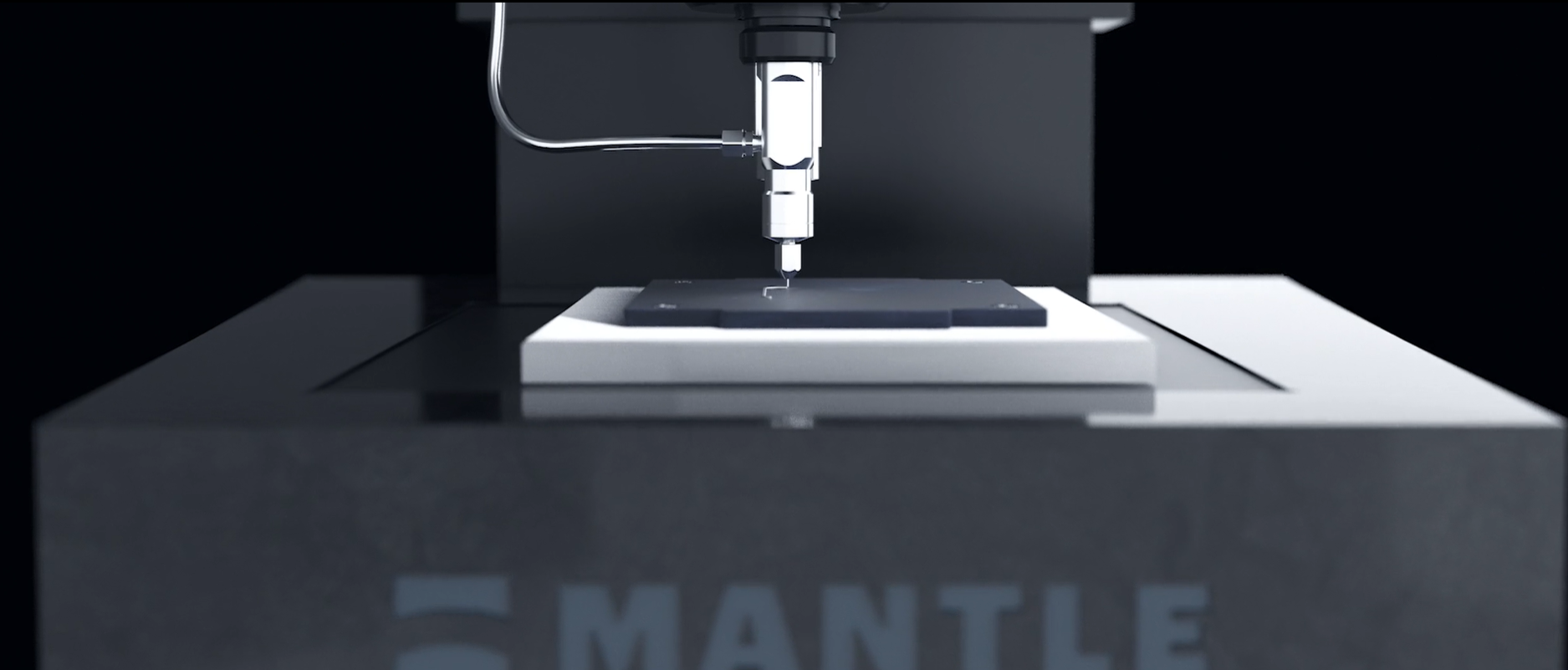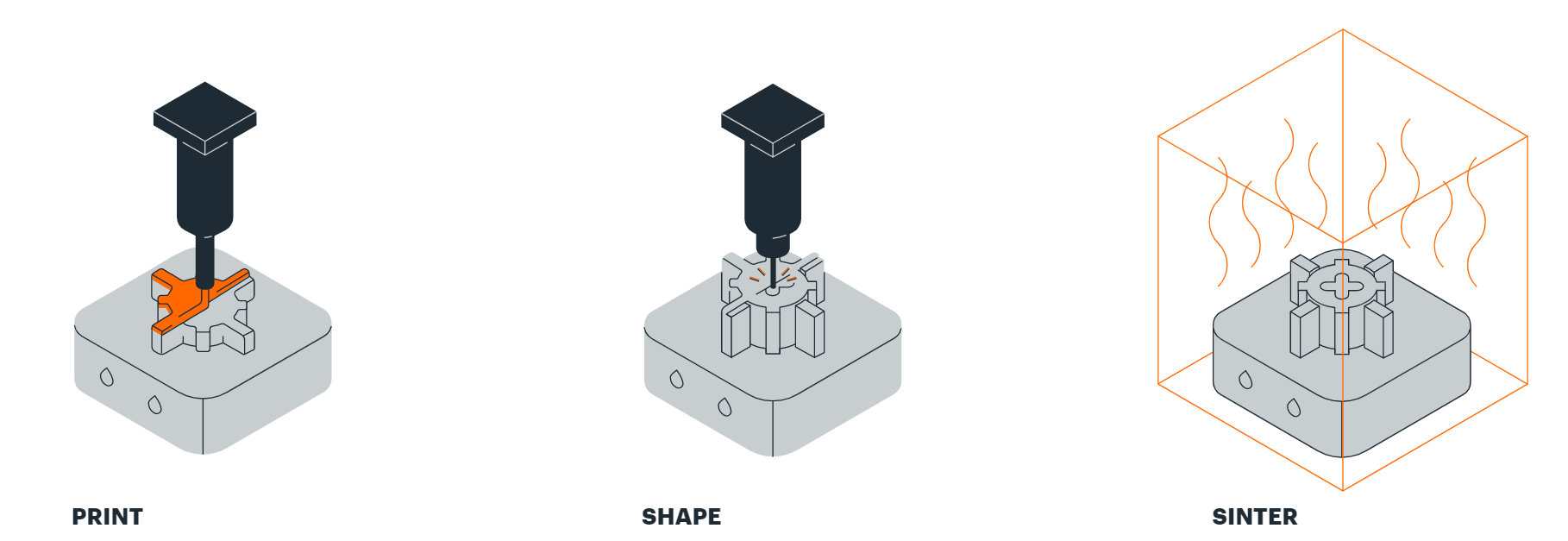The 2021 3D Printing Industry Awards shortlists are open for voting, have your say now.
Metal 3D printer manufacturer Mantle has raised $25 million in a Series B financing round, taking the total funding raised by the company to $41.5 million.
In addition to expanding its team, the company will use the funds to accelerate the development and installation of its first commercial systems in early 2022. Mantle also announced that more than one million end-use parts have been fabricated using its 3D printed tool components, ranging from deodorant packaging to medical devices and dishwasher components.
“Most of the products we use every day are manufactured using the types of tools that Mantle prints,” said Ted Sorom, Mantle CEO and Co-founder. “Our investors and customers are excited about the evolutionary and revolutionary nature of Mantle’s unique approach. Mantle allows companies to evolve with the manufacturing processes, materials, and supply chains they know and trust while realizing a revolutionary improvement in tooling lead time and cost.”

Exiting stealth mode
Mantle arrived on the 3D printing scene earlier this year after exiting stealth mode with $13 million in funding in February. The company is targeting the $45 billion manufacturing tooling market and unveiled cosmetics giant L’Oréal as its first industrial partner.
The Bay Area-based firm debuted its hybrid TrueShape technology upon its launch, designed to encapsulate the entire end-to-end workflow for precision metal part production. The process combines metal extrusion with subtractive milling to reduce manufacturing costs and lead times while improving the surface quality of 3D printed parts.
First, the system 3D prints a ‘rough part geometry’ using one of Mantle’s proprietary Flowable Metal Paste materials which, once extruded, is then further shaped using a high-speed milling toolhead. Finally, the part is sintered in a furnace to fuse the metal into a dense, solid component.
Prior to its emergence from stealth mode, Mantle’s technology had already been used by an unnamed global appliance manufacturer to 3D print a special tool insert, enabling the molding of over 200,000 washing machine parts. Now, over one million end-use parts have been produced with Mantle’s 3D printed tools.

The Series B financing
Mantle has raised $25 million in its latest funding round, led by Fine Structure Ventures, a venture capital fund affiliated with FMR LLC, the parent company of Fidelity Investments. The Series B financing also saw participation from the firm’s existing investors, including Foundation Capital, Hypertherm Ventures, Future Shape, 11.2 Capital, and Corazon Capital.
Mantle is planning to use the funds to expand its hardware, software, materials science, and manufacturing teams, and will also use the money to ramp up the development and installation of its first commercial systems early next year.
“Fine Structure Ventures sees that a digital transformation is happening in the manufacturing industry,” said Shyam Kamadolli, Managing Director at Fine Structure Ventures. “Mantle is helping manufacturers redefine how they bring products to market by reducing lead times and costs while implementing more digital, flexible, and local supply chains.
“We are impressed by the value that Mantle’s early customers have realized and look forward to supporting Mantle’s expected growth.”
Mantle’s customer success
Unlike other 3D printing technologies that struggle to produce high-volume end-use parts directly, Mantle has focused on 3D printing the tools used to make such parts, which are typically time-consuming and expensive to make.
One company that has benefited from Mantle’s 3D printing technology is Tessy Plastics, a global contract manufacturer specializing in injection molding, which used the firm’s 3D printed tooling components in a production tool for producing a high-volume consumer product. The tool uses several 3D printed inserts and has run more than 400,000 cycles, with all molded parts meeting Tessy Plastics’ quality standards for dimensional accuracy and surface finish.
Elsewhere, an unnamed medical device manufacturer has successfully reduced the lead time for a prototype tool from 12 weeks to four using Mantle’s 3D printed tooling components, while decreasing costs by more than 65 percent.
In addition to the tooling market, Mantle is also seeking to branch out its TrueShape technology for applications in the $350 billion precision parts sector, including jigs and fixtures, low volume industrial machinery and spare parts, and high volume part production.
“Mantle has demonstrated tremendous progress in addressing the $45 billion tooling market,” said Steve Vassallo, General Partner at Foundation Capital. “They are consistently proving that they can help manufacturers reduce time and cost from their tooling programs.
“We believe that our further investment in the company will help bring Mantle’s precision metal 3D printing technology to a market that has desperately needed this innovation.”
Subscribe to the 3D Printing Industry newsletter for the latest news in additive manufacturing. You can also stay connected by following us on Twitter and liking us on Facebook.
Looking for a career in additive manufacturing? Visit 3D Printing Jobs for a selection of roles in the industry.
Subscribe to our YouTube channel for the latest 3D printing video shorts, reviews and webinar replays.
Featured image shows the build plate of the Mantle 3D printer. Image via Mantle.


